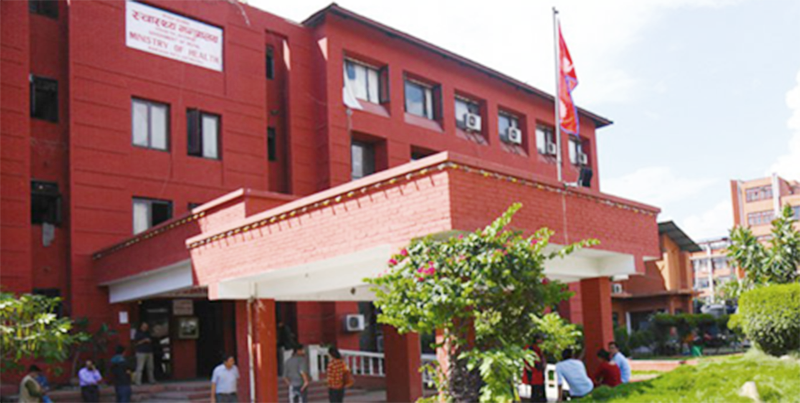Govt issues new guidelines for COVID testing
KATHMANDU, JUNE 5
The Ministry of Health and Population has come up with new guidelines for coronavirus testing, setting priority for testing swab samples using polymerase chain reaction method.
The health ministry, in its National Testing Guidelines for COVID-19, has stated that all the suspected cases with high risk of infection, such as highly mobile population, returnees from other countries or high-transmission areas and contacts of the confirmed cases, will be given the top priority as far as PCR testing is concerned.
Second on the priority list are frontline health care workers — doctors, nurses, laboratory personnel, paramedics and support staff, such as ambulance drivers, health facility support staff; staff working in critical services, such as security personnel, waste care management workers; patients requiring urgent medical and surgical attention and patients at higher risk of adverse outcomes, such as people with underlying chronic conditions and elderly suspected to have contracted COVID-19.
Third on the list are individuals who show COVID symptoms, but do not fall in any of the above categories.
Least priority will be given while testing to asymptomatic individuals, with no travel or contact history and those interested in self-recommended testing.
The ministry has also recommended testing samples using PCR method of all suspected COVID cases, patients with acute respiratory illness (fever and cough or fever and shortness of breath) and those coming from COVID-19 hotspots.
Patients with any acute respiratory illness and having been in contact with a confirmed or probable COVID-19 case in the last 14 days prior to onset of symptoms and patients with severe acute respiratory illness will also be tested using PCR method.
Also patients with acute respiratory illness and new loss of smell or taste, patients with acute respiratory illness and showing any two of these — chills, muscle pain, diarrhoea, sore throat and patients with acute respiratory illness in the absence of an alternative diagnosis that fully explains the clinical presentation, persons having been in contact with a confirmed or probable COVID-19 case, patients with acute respiratory illness with underlying chronic conditions, immunocompromised conditions, as well as elderly patients will also be tested using PCR method.
For the medical and surgical cases, the guidelines warn against delaying the surgery/ procedure for life or limb-threatening conditions, even for patients who meet the criteria for testing of COV- ID-19.
For medical conditions requiring admission, including dialysis, the guidelines recommend testing only those who come from COVID-19 high transmission areas.
The health ministry discourages PCR tests for those who are asymptomatic in quarantine centres. The ministry has recommended rapid diagnostic tests for those who complete 14 days in quarantine centres.
However, this guideline violates the Supreme Court’s order that the health ministry conduct PCR test of all those staying in quarantines.
“The new guidelines are meant to standardise laboratory testing criteria for the novel coronavirus in Nepal and to facilitate and ensure common understanding on COVID-19 laboratory testing throughout the country. It will also ensure rational use of laboratory resources,” said Samir Kumar Adhikari, assistant spokesperson for the health ministry.
A version of this article appears in e-paper on June 6, 2020, of The Himalayan Times.






